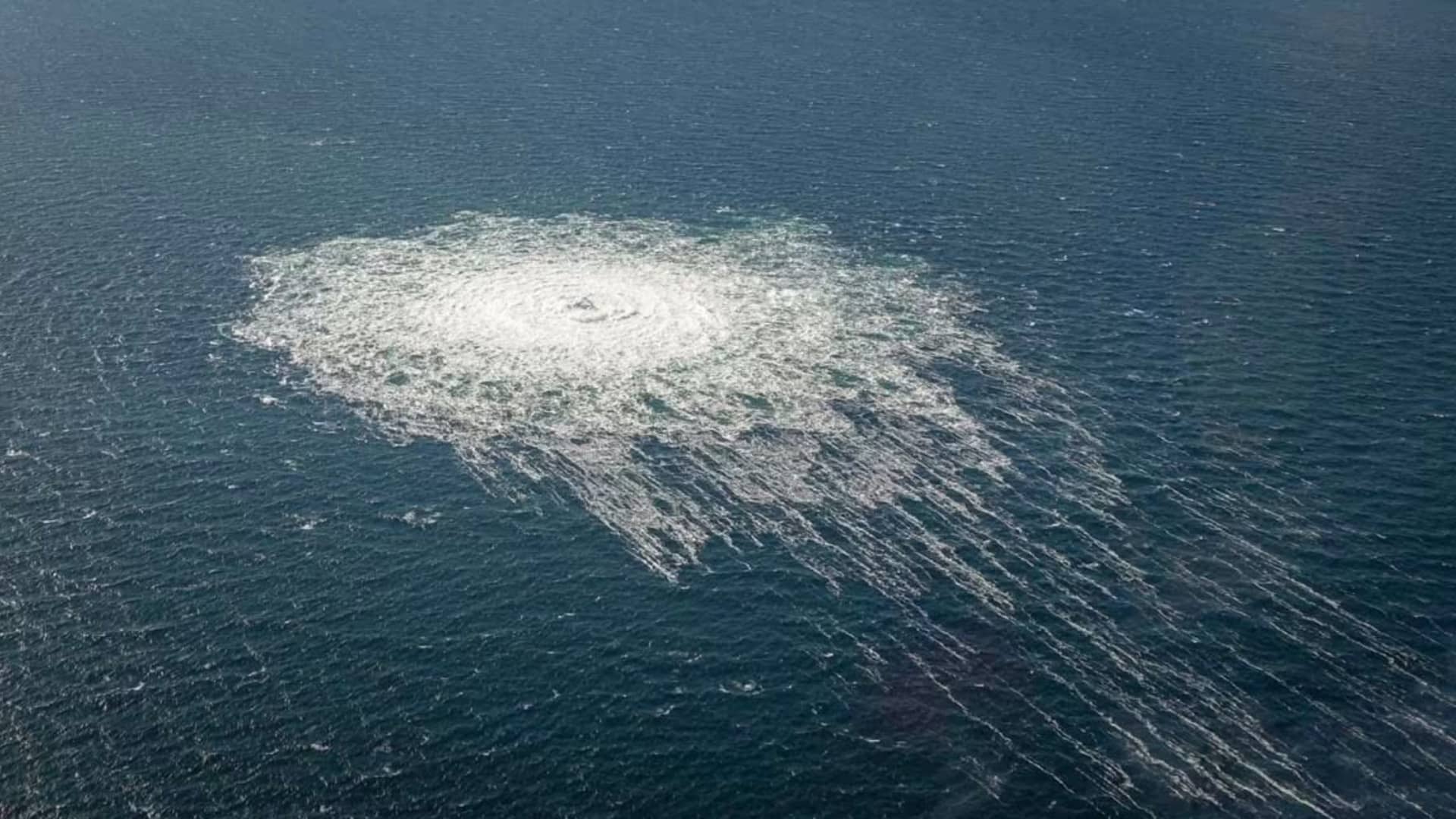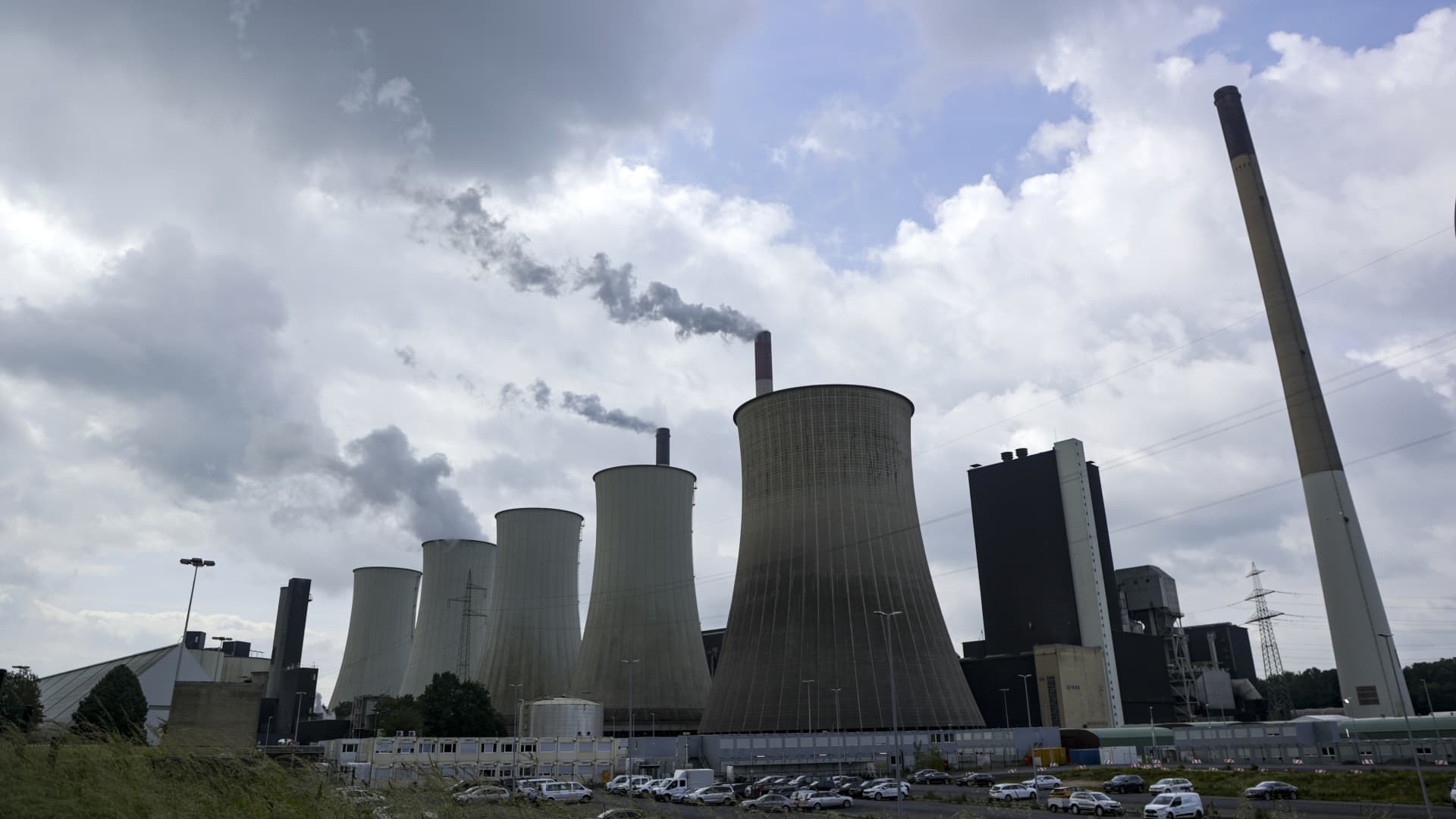Europe vows ârobust and unitedâ response to suspected sabotage of two Russian gas pipelines


The European Union on Wednesday raced to find out exactly what happened and why after mystery leaks hit two underwater Russian gas pipelines, warning of retaliatory measures for any deliberate attack on the region’s energy infrastructure.
In a statement on behalf of all 27 members, EU foreign policy chief Josep Borrell said Wednesday that the bloc was “deeply concerned” about the damage to the Nord Stream 1 and 2 gas pipelines connecting Russia to Germany via the Baltic Sea.
“All available information indicates those leaks are the result of a deliberate act. We will support any investigation aimed at getting full clarity on what happened and why, and will take further steps to increase our resilience in energy security,” Borrell said.
“Any deliberate disruption of European energy infrastructure is utterly unacceptable and will be met with a robust and united response.”
Nord Stream AG, the operator of the two pipelines, said Tuesday that three known gas leaks caused “unprecedented” damage. The company added it was not possible to determine when the gas network system’s capacity would be restored.
Seismologists on Monday reported explosions in the vicinity of the unusual Nord Stream gas leaks, prompting gas to spew into the Baltic Sea.
Denmark’s armed forces said video footage showed the largest gas leak created a surface disturbance of roughly 1 kilometer (0.62 mile) in diameter, while the smallest leak caused a circle of approximately 200 meters.
Danish and Swedish authorities declared a no-shipping zone around the location of the leak, which is situated in international waters but inside Denmark and Sweden’s exclusive economic zone.
The cause is not yet known. Some European leaders have suggested possible sabotage, particularly as the suspected attack comes amid a bitter energy standoff between Brussels and Moscow.
European Commission President Ursula von der Leyen said Tuesday that it was of paramount importance to investigate the incidents.
“Any deliberate disruption of active European energy infrastructure is unacceptable [and] will lead to the strongest possible response,” von der Leyen said via Twitter.
Swedish Prime Minister Magdalena Andersson and Danish Prime Minister Mette Frederiksen said the leaks were clearly the result of deliberate actions, while Poland’s prime minister, Mateusz Morawiecki, said the suspected attack was an act of sabotage.
Both Europe and Russia have said sabotage cannot be ruled out as the cause of the damage.
Kremlin spokesperson Dmitry Peskov said Wednesday that claims Russia was behind the suspected attack were “stupid,” Reuters reported.
“Never believe anything until the Kremlin denies it,” Timothy Ash, an emerging markets strategist at BlueBay Asset Management, said via email.
Neither pipeline was pumping gas at the time of the leaks but both lines were still pressurized: Nord Stream 1 stopped pumping gas to Europe “indefinitely” earlier this month, with Moscow’s operator saying international sanctions on Russia prevented it from carrying out vital maintenance work.
The Nord Stream 2 pipeline, meanwhile, never officially opened as Germany refused to certify it for commercial operations due to Russia’s invasion of Ukraine.
Environmental hazard
Analysts at political risk consultancy Eurasia Group said that given the pipelines have the capacity to pump around 165 million cubic meters of methane-heavy gas per day, leaks of this scale are a “severe safety and environmental hazard, especially should Russia not stop pumping gas into the system.”
Swedish police on Tuesday started an investigation regarding Nord Stream.
Sweden’s Prosecution Authority told CNBC on Wednesday that prosecutors are now reviewing the investigation and will decide how the case will be handled going forward.
U.S. Secretary of State Antony Blinken said Tuesday that he held talks with Danish Foreign Minister Jeppe Kofod about the “apparent sabotage” of Nord Stream 1 and 2.
Blinken said the U.S. “would remain committed to promoting European energy security.”
— CNBC’s Holly Ellyatt contributed to this report.
Correction: Denmark’s prime minister is Mette Frederiksen and Poland’s prime minister is Mateusz Morawiecki. An earlier version misspelled their names.
This post has been syndicated from a third-party source. View the original article here.



